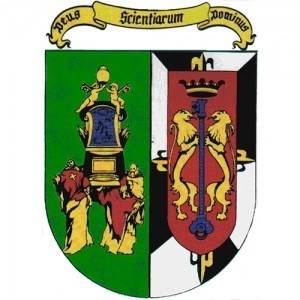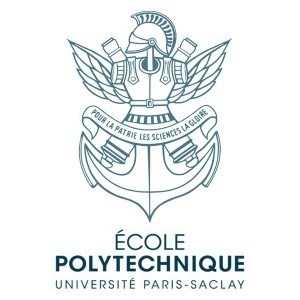Photos of university / #universityofgroningen
The Bachelor's degree programme in Chemical Engineering at the University of Groningen offers a comprehensive and rigorous education designed to prepare students for a successful career in the chemical and process industry, research, or further academic pursuits. This programme combines fundamental scientific principles with practical engineering skills, enabling students to develop innovative solutions to complex chemical processes and environmental challenges. Throughout the programme, students acquire a solid understanding of chemistry, physics, mathematics, and engineering fundamentals, which are essential for designing, analyzing, and optimizing chemical processes. The curriculum emphasizes interdisciplinary learning, integrating concepts from materials science, thermodynamics, transport phenomena, reaction engineering, and process design, ensuring graduates are well-equipped to tackle real-world problems. The programme also highlights sustainable development and green engineering practices, reflecting the university’s commitment to environmentally responsible engineering solutions. Students benefit from state-of-the-art laboratories, internships, and project work that foster hands-on experience and collaboration skills. The university’s strong links with industry partners provide opportunities for internships and projects that translate theoretical knowledge into practical applications. Additionally, the programme encourages international mobility, allowing students to participate in exchange programmes and gain global perspectives on chemical engineering challenges. Graduates of this programme are prepared for diverse roles in industries such as pharmaceuticals, energy, food production, environmental technology, and materials manufacturing. They are equipped with the analytical, problem-solving, and communication skills necessary to innovate and lead in a rapidly evolving technological landscape. The Bachelor's degree in Chemical Engineering at the University of Groningen is an ideal starting point for students passionate about science, technology, and sustainable development, aiming to make a meaningful impact on society and the environment.
Detailed Course Facts
Application deadline Dutch students - May 01, 2015; EU/EEA students - June 01, 2015; non-EU/EEA students - April 01, 2015 Tuition fee- EUR 1951 Year (EEA)
- EUR 10400 Year (Non-EEA)
Duration full-time 36 months Languages Take an IELTS test
- English
Course Content
Programme schedule
Courses year 1
- And more course units, up to 60 ECTS each year
- Biochemistry
- Calculus, practicals
- Electives (20 ECTS)
- Organic chemistry
- Orientation on Chemistry tracks or the Chemical Engineering programme
- Physical chemistry
- Process and product technology
Courses year 2
- Course units of 60 ECTS each year
- Linear algebra
- Macro-molecular chemistry
- Practicals
- Single-Phase Reactors
- Transport phenomena 1
Courses year 3
- Bachelor's Research Project
- Control engineering
- Course units of 60 ECTS each year
- Multi-phase reactors
- Practicals
- Product technology
- Transport phenomena 2
Study abroad
- Study abroad is optional
- Maximum of 30 EC
(Binding) study advice
- A minimum of 45 EC in the first 12 months ( binding )
- Get your propedeutic diploma in the first 24 months ( binding )
You will be offered study advice after first and second years of study. You can expect a positive result if you have earned more than 45 ECTS credit points (out of a total of 60 ECTS). If you have earned fewer than 45 ECTS and are issued a negative result, you will not be allowed to continue with your degree programme.
In addition, you are also expected to pass all your first-year exams by the end of your second year of study. If you don't, you will be issued a negative result and will have to leave the degree programme.You will receive preliminary study advice in December to make sure that you know where you stand.
Please contact your study advisor as soon as possible if you have any questions about the BSA system.
N.B. Some degree programmes use a tutoring system; please check with your study advisor.
English Language Requirements
IELTS band : 6.5 TOEFL paper-based test score : 580 TOEFL iBT® test : 92
To study at this university, you have to speak English. We advice you to
take an IELTS test.Requirements
Dutch studentslanguage test
Een voldoende op je eindexamen Engels is aan te bevelen omdat de opleiding Engelstalig is.
International studentsadditional subject
Mathematics, Physics and Chemistry.
This is merely an indication of required background knowledge. The admissions board determines whether the specific contents of this/these course(s) meet the admission requirements of the bachelor programme for which you applied.
knowledge minimum
What if you do not meet the admissions requirements?
We offer a foundation year for students who do not meet the admissions requirements, in association with the Holland International Study Centre. The Foundation year will help you develop your academic skills and English language to the required standard, after which you can progress to the first year of your Bachelor's programme.
More information can be found at: http://www.hollandisc.com/(...)ence-and-engineering
language test
Proof of English proficiency is required: TOEFL IBT score of 92, a TOEFL CBT score of 237, a TOEFL PBT score of 580, an IELTS score of 6.5, a CAE or CPE certificate.
MAKE SURE TO VISIT http://www.rug.nl/(...)issions/bsc/language for all the necessary information about required language tests.
previous education
Secondary education equivalent to Dutch pre-university education is required.
This is merely an indication of the required general level of applicants' previous education.
FOR MORE INFORMATION please visit the 'BSc Application Procedure' pages at: http://www.rug.nl/(...)amme/admissions/bsc/
other admission requirements
BEFORE YOU APPLY!
Make sure to visit 'BSc Application Procedure' at:http://www.rug.nl/(...)amme/admissions/bsc/for all the necessary information about the procedure and admission requirements.
Work Experience
No work experience is required.
Related Scholarships*
- Academic Excellence Scholarship
"The Academic Excellence Scholarship can provide up to a 50 % reduction in tuition per semester. These scholarships will be renewed if the student maintains superior academic performance during each semester of their 3-year Bachelor programme. The scholarship will be directly applied to the student’s tuition fees."
- Alumni Study Travel Fund
Scholarships for students who are already attending the University of Reading.
- Amsterdam Merit Scholarships
The University of Amsterdam aims to attract the world’s brightest students to its international classrooms. Outstanding students from outside the European Economic Area can apply for an Amsterdam Merit Scholarship.
* The scholarships shown on this page are suggestions first and foremost. They could be offered by other organisations than University of Groningen.
Funding
The university is committed to recognizing excellence in academic achievement through offering a number of scholarships for international students and researchers. Several scholarships are available for international students who are motivated to study Bachelor’s, Master’s and PhD programmes, as well as for exchanges, short courses and research stays at our university.
Besides scholarships awarded by the University of Groningen, a number of grants awarded by the Dutch government, the EU and (inter)national organizations, such as World Bank or the Ford Foundation, can be used for study or research at the University of Groningen as well.
Chemical Engineering at the University of Groningen is a comprehensive and challenging program designed to prepare students for a wide range of careers in the chemical industry, environmental technology, and related fields. The program focuses on the fundamental principles of chemical processes, including chemistry, physics, mathematics, and engineering, providing students with a solid foundation to develop innovative solutions for complex industrial problems. Students learn about process design, operation, and optimization, and gain practical skills through laboratory work, projects, and internships.
The curriculum emphasizes sustainable and environmentally friendly technologies, reflecting global shifts towards sustainable development. Students explore topics such as reaction engineering, process control, material engineering, and energy systems, fostering multidisciplinary expertise. The program encourages collaborative projects and team-based learning, preparing students to work effectively in multicultural and interdisciplinary teams.
The program usually offers specializations in areas such as process engineering, material science, or environmental technology, allowing students to tailor their education according to their interests and career goals. Dutch and international students benefit from the university’s strong links with industry, providing opportunities for internships and cooperative education. The university's modern laboratories and facilities support hands-on learning, enabling students to apply theoretical knowledge in practical settings.
Graduates of the program acquire the skills needed to innovate and improve chemical processes, contribute to sustainable industry practices, and develop new materials or energy solutions. Career prospects are diverse, including roles in process engineering, research and development, environmental consultancy, and management within various sectors such as oil and gas, pharmaceuticals, food production, and renewable energy.
The university also offers opportunities for further academic research, including Master’s programs and PhD studies, for students interested in pursuing careers in academia or advanced research. Overall, the Chemical Engineering program at the University of Groningen aims to blend scientific principles with practical skills, fostering a new generation of engineers capable of tackling global challenges related to chemical processes and sustainability.








